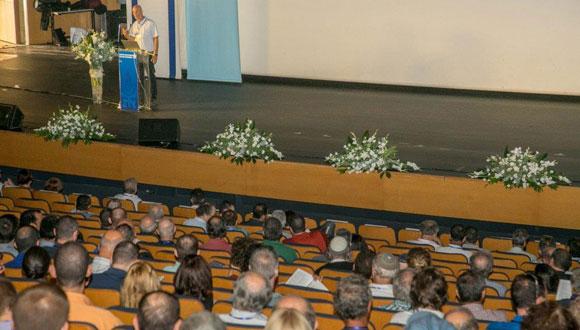Physics Colloquium: First measurements of resonant transitions in trapped antihydrogen atoms
Eli Sarid, Soreq NRC, Israel and the ALPHA collaboration, CERN
Abstract:
Comparison of the properties of matter and antimatter is an important basic physics problem. Measurements of energy transitions in trapped antihydrogen and their comparison to the transitions in hydrogen atoms can be used as a sensitive test of CPT symmetry. The ALPHA collaboration in CERN first demonstrated trapping of cold antihydrogen atoms in 2010 [1], demonstrating later long time capture of 15 minutes and more. As a first demonstration of introducing resonant transitions between levels of trapped antihydrogen atoms [2], ALPHA used microwave radiation (2012) to induce transitions between the hyperfine levels of the ground state of the antiatoms. Last year (2016) we performed the first ever measurement of the resonant transition 1S→2S in antihydrogen, using two-photon laser excitation with 243 nm light [3]. These initial measurements indicated that the antihydrogen 1S→2S transition energy is equal to its hydrogen counterpart at the level of about 2×10-10. With improved techniques that enable us now to trap on average 14 antiatoms per trial, ALPHA plans to perform increasingly precise spectroscopy CPT tests. A new system is also being constructed to enable measurements of the gravitational free fall of antihydrogen.
[1] Trapped Antihydrogen, Nature 468,673 (2010).
[2] Resonant quantum transitions in trapped antihydrogen atoms, Nature, 483, 439 (2012).
[3] Observation of the 1S–2S transition in trapped antihydrogen, Nature, 541, 506 (2017).
Event Organizer: Prof. Marek Karliner


